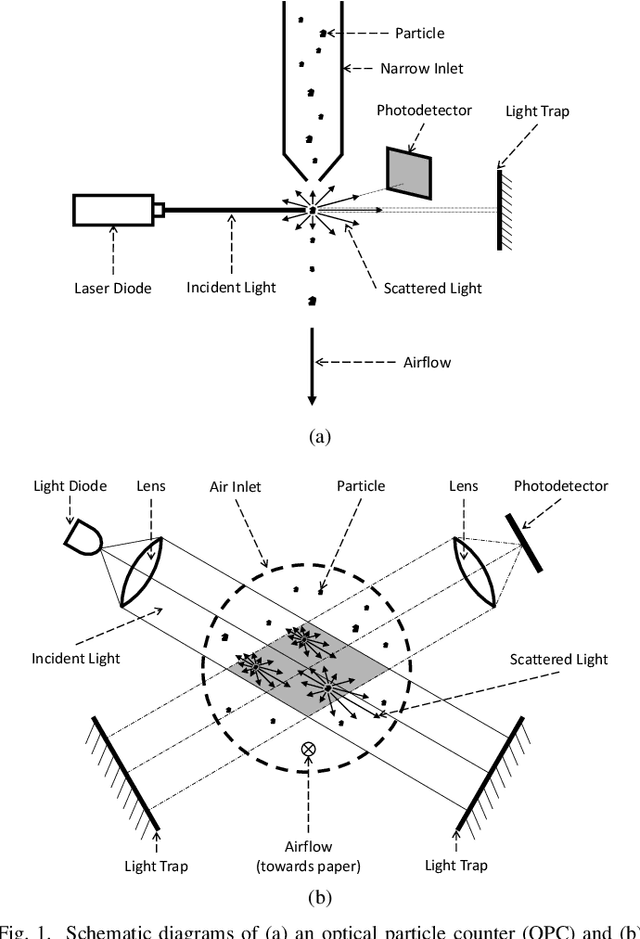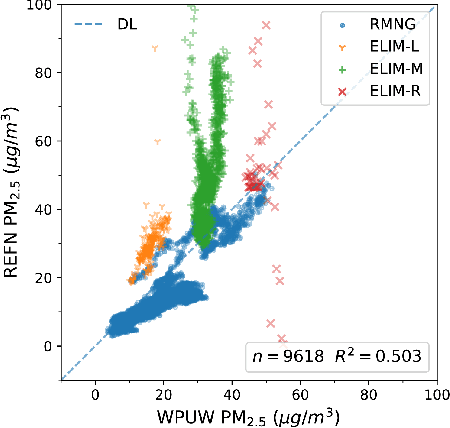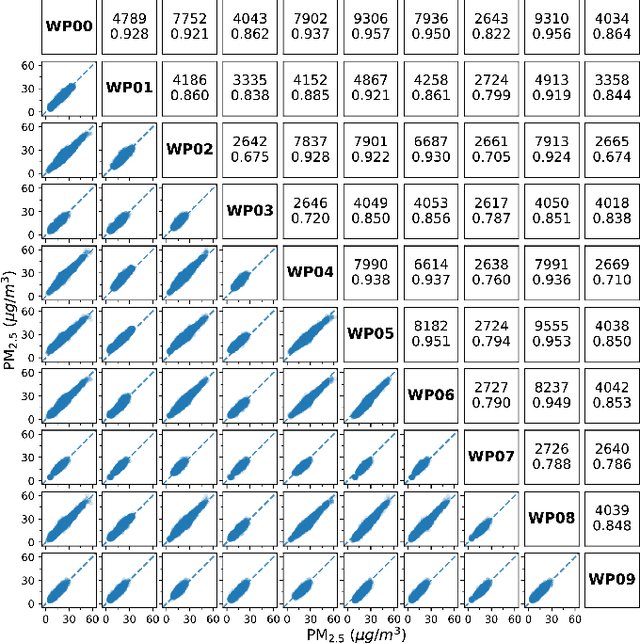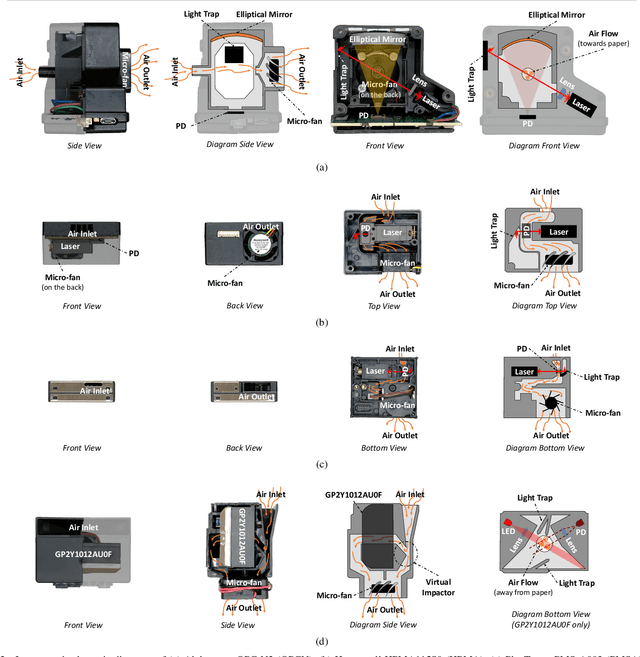Wen-Wei Che
Field Evaluation of Four Low-cost PM Sensors and Design, Development and Field Evaluation of A Wearable PM Exposure Monitoring System
Jul 11, 2022



Abstract:To mitigate the significant biases/errors in research studying the associations between PM and health, which are introduced by the coarse/inadequate assessments of PM exposure from conventional PM monitoring paradigm, a personalized monitoring system consisting of a low-cost wearable PM device is proposed. However, due to the absence of a unifying evaluation protocol for low-cost PM sensors, the evaluation results/performance specifications from existing studies/datasheets are of limited reference values when attempting to determine the best candidate for the proposed system. In this regard, the authors appeal to the research community to develop a standardized evaluation protocol for low-cost PM sensors/devices, and a unifying attempt is established in this manuscript by adopting the definitive terminology from international documents and the evaluation metrics regarded as best practices. Collocated on the rooftop of the HKUST Supersite, four empirically selected PM sensors were compared against each other and calibrated against two reference monitors. They were then evaluated against the reference following the protocol. The PlanTower PMS-A003 sensor was selected for the wearable device as it outperformed the others in terms of affordability, portability, detection capability, data quality, as well as humidity and condensation insusceptibility. An automated approach was proposed to identify and remove the condensation associated abnormal measurements. The proposed device has better affordability and portability as well as similar usability and data accessibility compared to those existing devices recognized. The first 10 devices were also evaluated and calibrated at the Supersite. Additional 120 units were manufactured and delivered to the subjects to acquire their daily PM2.5 exposures for investigating the association with subclinical atherosclerosis.
 Add to Chrome
Add to Chrome Add to Firefox
Add to Firefox Add to Edge
Add to Edge